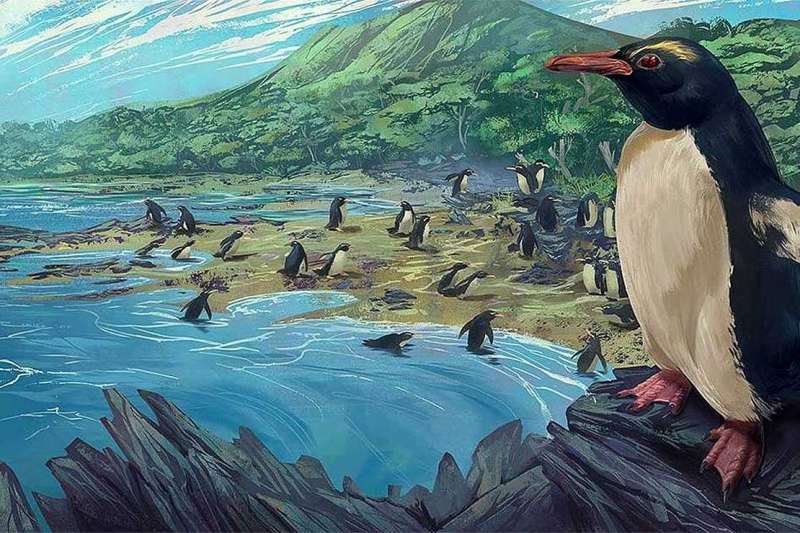Newly-described fossils reveal an ancient origin for New Zealand penguins

New Zealand is surrounded by highly productive oceans that attract seabirds from around the world, forming a global hotspot for seabird diversity. Establishing how and when this hotspot formed has been challenged by a lack of fossil discoveries connecting New Zealand's living seabirds to their ancient relatives.
Researchers from Massey University, Bruce Museum (CT, U.S.), Canterbury Museum, Museum of New Zealand Te Papa Tongarewa, and Iowa State University (IA, U.S.) have analyzed fossil bones from an ancient penguin discovered in coastal Taranaki in the North Island of New Zealand. Museum curators Alan Tennyson and Paul Scofield recognized the importance of fossil bones being found by local collectors and assembled collections to begin the investigation.
The newly described three-million-year old dawn crested penguin Eudyptes atatu from Taranaki now provides a crucial connection to the past, confirming crested penguins, and perhaps other types of seabird, have been living in Zealandia, or the New Zealand continent Te Riu-a-Māui, for millions of years.
"This has been an exciting research collaboration to be part of," Daniel Thomas from the School of Natural and Computational Sciences at Massey University says.
"It's given us an important into the evolution of crown penguins and re-enforces the importance of the New Zealand continent for seabird evolution. Our growing fossil record suggests that Zealandia was an incubator of penguin diversity in which the first penguins likely evolved and later dispersed throughout the Southern Hemisphere. The name of the newly described penguin species Eudyptes atatu comes from a contraction of ata tū, which is 'dawn' in Te Reo Maori. Dawn references the fact that this species is the beginning of our knowledge for crested penguins in New Zealand."
The research is detailed further in a paper titled "Ancient crested penguin constrains timing of recruitment into seabird hotspot" published in the Proceedings of the Royal Society B. The study concludes that the ancestor of all penguins lived in Zealandia over 60 million years ago, and that the ancestor of crested penguins may have originated in Zealandia before its descendants dispersed throughout the Southern Hemisphere.
More information: Daniel B. Thomas et al. Ancient crested penguin constrains timing of recruitment into seabird hotspot, Proceedings of the Royal Society B: Biological Sciences (2020). DOI: 10.1098/rspb.2020.1497
Journal information: Proceedings of the Royal Society B
Provided by Massey University




















